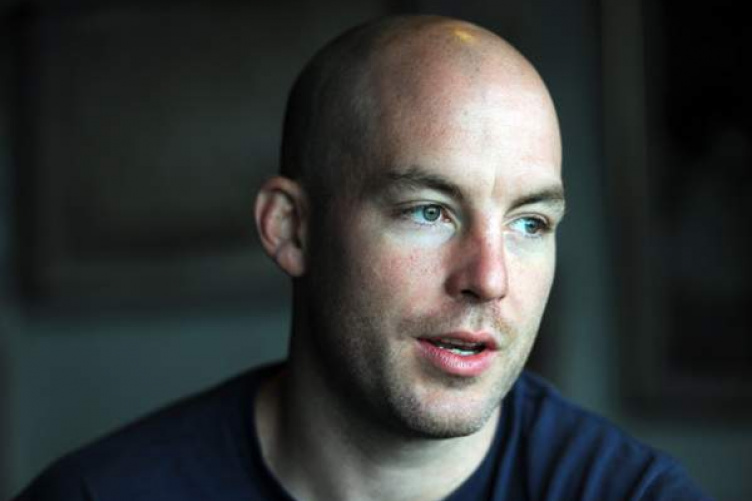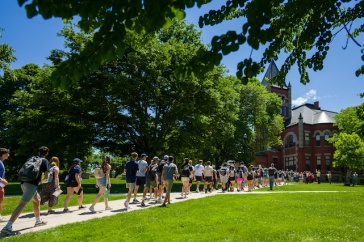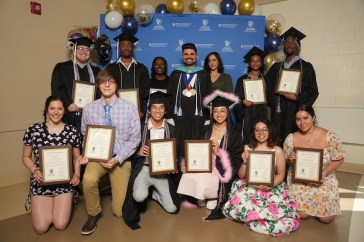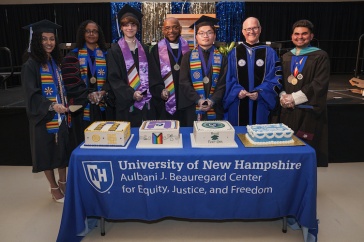
As a veteran of the war in Afghanistan, Brendan O'Byrne is sharing his story to help others. Courtesy photo
“You hear a lot of the stories about how bad war is — and it is, there is no doubt — but what people don’t hear a lot about is the other side.”
That other side, explains Brendan O’Byrne of Dover, New Hampshire, is a sense of humanity that he never experienced before serving in Afghanistan.

“It’s a really good feeling that you all have each other’s backs and you’re all looking out for each other,” he says. “When servicemen and women come home from war, society can feel really alienating after being in a place where you cared for each other all the time.”
O’Byrne has completed his first two semesters focusing on liberal arts courses at UNH after serving a 15-month tour as an Army sergeant in Afghanistan, is not a stranger to telling his story. His experiences have been included in documentaries on the war in Afghanistan, and with the launch of films like “Restrepo” and “Korengal” came speaking engagements where O’Byrne candidly discussed issues such as post-traumatic stress disorder (PTSD) and the challenge of coming home.
With June’s designation as PTSD Awareness Month, O’Byrne spoke with UNH Today about his experiences and his desire to help other veterans — on campus and beyond.
On-Campus Resources for PTSD
UNH Military & Veterans Services and the Counseling Center have resources for those affected by PTSD.
Visit the Counseling Center’s page on PTSD Awareness here, and learn more about Military & Veterans Services here.
When servicemen and women go to war and become soldiers, they learn lessons about humanity that “we don’t learn in society,” O’Byrne explains. “They need to bring back those stories. Without veterans talking about their experiences, there is no chance for society as a whole to learn those lessons.”
For most of human history, O’Byrne continues, people have clustered in small groups, helping each other, working together against outside threats — that is, up until recent times.
“Our society is not set up for those really close bonds,” he says, “and that is totally alien to what humanity really is.”
The first signs of his own PTSD began on O’ Byrne’s way home from Afghanistan. In his hotel room, O’Byrne was terrified. “It was the first time I was alone in 15 months,” he says, recalling the panic attack that came next and the drinking that would follow. “I knew I needed help.”

However, O’Byrne says, the treatment approaches at the Veterans Administration didn’t help. What did work was talking to a World War II veteran who had been a coach and mentor to O’Byrne in his youth. “He told me, ‘It takes time.’ I realized the people I needed to be talking to were veterans — those who have come home and come home well.”
O’Byrne hopes to provide that support for others: His goal is to write a book about his journey home, PTSD and treatment and earn enough money to buy land and build cabins to provide a safe, free place where veterans adjusting to life after war can go when they need to get away.
“Those coming home need our support, as do others — not just veterans — who feel the burden of what society is.”
-
Written By:
Jennifer Saunders | Communications and Public Affairs | jennifer.saunders@unh.edu | 603-862-3585



















































